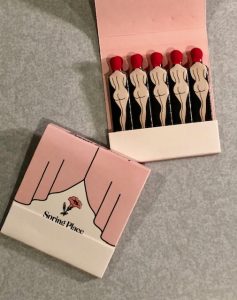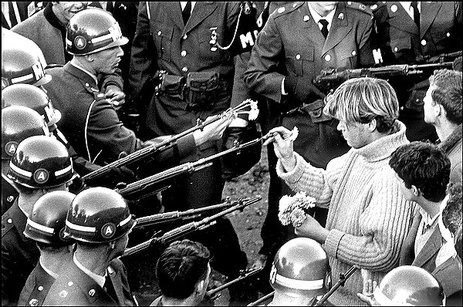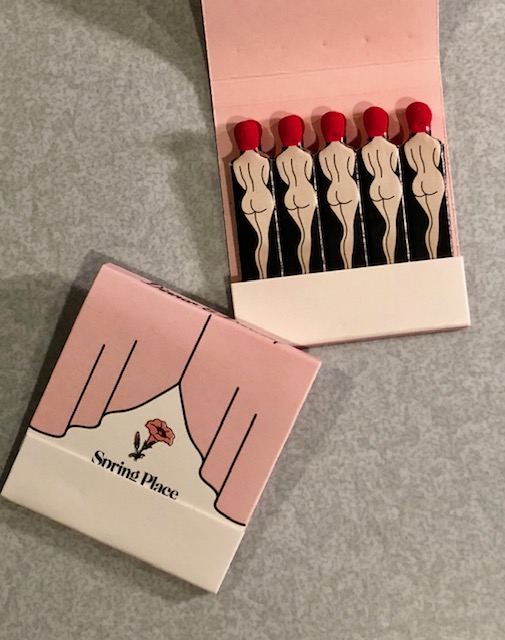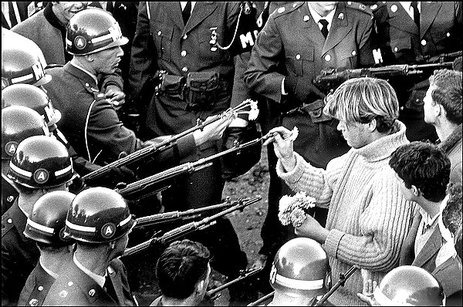Matchbook History, Lion Match Factory Dating Back to the 1920s Found!
A very cool piece of matchbook history was discovered in Long Island City, New York!
Old Lion Match Factory Building Found

Leo Greenbaum was the founder of Lion Match Corporation. His New York Times obituary in 1950 explored his path as a 13-year-old German immigrant who, over the course of the next sixty years was to be a bootblack, a dishwasher, a waiter, a restaurant owner and, when he died at age 74, a resident of Central Park West in New York City.
In 1917 Greenbaum began manufacturing paper matchbooks using a single used machine on the Lower East Side of Manhattan. He then moved his factory to Brooklyn and in 1924, relocated to Long Island City, NY where he expanded his manufacturing facility to occupy three buildings.
Leo possessed 21 U.S. patents and he wasn't afraid to take chances on setting up new production lines and to indulge into new advertising matchbook concepts . He was known as the ‘Match King’ by admirers and competitors alike.
Among phillumenists (match collectors) the company’s name is legendary. ‘The Matchcover Vault’; a reference resource for matchbook collectors, sums up Lion Match’s place in history: “There’s nothing like holding an old Lion full-book “Feature” in the palm of your hand. You notice right away that it’s not like any other cover. It’s heavier; it’s thicker; and you know when you open it up that it’s going to be a veritable feast for the eyes.”

TheMatchGroup is proud to continue Mr Greenbaum's legacy by producing the same style "Feature" matchbooks (with individually printed decorative match stems) that his company brought to market! We're able to print one to four colors on the special flat feature match stems and also produce special die cut shapes!
Contact us to produce your business' own collectible matches!
Striking Images: Matchbook Advertising Article from UnderTheInfluence by CBC Rado
Fantastic Article about the remarkable story and journey of match advertising with references to some remarkable "moments in match history" Under The Influence

They were the first company to utilize matches in a National Advertising Campaign.
To order your Buisiness' own branded match books get in touch with one of our "matchmakers" at TheMatchGroup or call 1-800.605.7331 TODAY!
Match Book Advertising & Free Speech: Period of the Late '60's Up to the Modern Day and Their Use During The Wars in Iraq and Afghanistan
Match Book Advertising and Free Speech

Just like any printed matter, match book advertising qualifies as a form of free speech in America. Therefore, making the circumstances under which the wording of a matchbook advertisement might be deemed to be an element of a crime very narrow under the First Amendment.
Nevertheless, there have been cases where matchbook advertising/propaganda has been known to test the limits of the law. For example, during the politically charged antiwar era of the late 1960's/early '70's matchbooks printed with the message "EOW" were distributed at Bloomfield State College in West Virginia. These letters stood as the acronym for "End of Week". The secret message behind these letters was passed along by the students encouraging them to burn the campus if the demands of certain student groups were not met by the end of the week.[1]
During this tumultuous period in our country's history; when our country was experiencing rampant (and deadly) college student protests against the Vietnam War and a series of riots fueled by rage in response to the news of the assassination of M.L.K. that resulted in the destruction of many major cities, match advertising was also used by "The Man" as a means to "counter" the "counterculture". "The Man" in this case was a Dallas Police Officer who decided to design and distribute his own matchbooks as propaganda to advertise his support for his fellow patrolmen with apparent success. So as the story goes, during the late '60's and early '70's members of the angry Hippie counterculture referred to Law Enforcement Officers as "Pigs." This Dallas Policeman, decided to take the sting out of the counterculture's disrespectful use of the word "Pig" by acknowledging it and to repurpose it in his own personal public relations campaign by distributing matchbooks along his beat that he had printed with the message "Leonard Edge: Pig and Proud!".[2]
The use of match book advertising by Law Enforcement didn't end after the '70's. Since then, local Police Departments and the FBI have used printed advertising matches as a method to aid in the capture of wanted fugitives, to advertise local D.A.R.E. anti-drug programs, as well as local "Cop Shot" Tips Hotline reward programs. Furthermore, back in 1995 -6 years PRIOR to the attacks on the World Trade Center and the Pentagon which lead to our engagement in two wars in Iraq and Afghanistan, the CIA and the local authorities in Pakistan had successfully distributed wanted posters along and MATCHBOOKS as a medium for advertising a $2 Million reward for the capture of wanted international terrorists such as Mir Amal Kansi who was wanted in the brutal attack outside CIA headquarters in 1993 in which two people were killed and three other people were permanently injured.[3]
To order your business' own groovy advertising matches check out TheMatchGroup
Man or call a member of our very hip and cool sales staff at 800.605.7331. who would love to turn your business' clients on to the experience of your custom branded match advertising!
[1] James v. West Virginia Bd. Of Regents, 322 F.Supp. 217 (S.D. W.Va., 1971), aff'd 448 F.2d 785 (4th Cir. 1971).
[2] Minor v. State, 469 S.W.2d 579 (Tex. Crim. App. 1971); Minor v. State, 476 S.W.2d 694 (Tex. Crim. App. 1972).
[3] CONG.REC.H10167 (daily ed.Oct.8,1998)(remarks of Rep. Gilman);see also United States Department of State, Daily Press Briefing (October 2,1995) GoTohttp://dosfan.lib.uic.edu/ERC/briefing/daily_briefings/1995/9510/951002db.html> (visited 10 August 1999).[End page 84]



